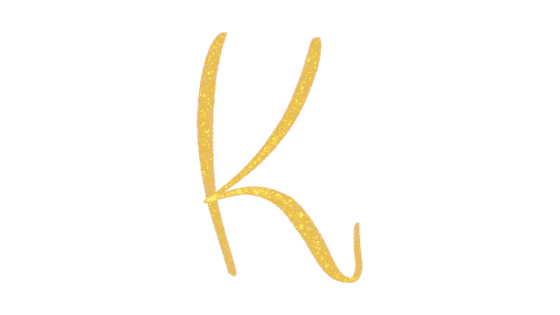Words To Describe Work Culture – Positive, Negative & Neutral
What is work culture?
Work culture, or company culture, encompasses the values, beliefs, behaviors, rituals, and environment of an organization.
It’s the underlying current that shapes how employees relate to one another, approach their tasks, and view their organization’s mission and goals.
A positive work culture fosters employee engagement, creativity, and loyalty, whilst a negative (or toxic) culture can be detrimental, leading to high turnover and low morale.
Therefore, understanding and being able to describe workplace culture is crucial for both job seekers aiming to find the right fit, and businesses wanting to attract and retain the top talent.
How To Describe Work Culture
When trying to describe a company’s culture, it’s useful to think about the following aspects:
- Values and Beliefs: What are the core values that guide decision-making and behavior within the company? This could be a commitment to innovation, a focus on customer satisfaction, or a dedication to environmental sustainability.
- Communication Patterns: Is there open communication across all levels? Do employees feel comfortable sharing their thoughts, or is there a more hierarchical approach?
- Work Environment: Consider the physical space and how it’s set up. Is it an open-plan office encouraging collaboration, or are there more private spaces? How does the environment reflect the company’s values?
- Leadership Style: How do leaders interact with their teams? Is there a top-down approach or a more democratic style?
- Recognition and Rewards: How are employees recognized and rewarded for their efforts? Are there regular feedback sessions, bonuses, or other incentives?
- Work-life Balance: Does the company prioritize work-life balance? Are there flexible working hours, remote work options, or wellness programs?
Considering these aspects can help in painting a comprehensive picture of a company’s culture.
Words To Describe Work Culture
The following list of words are commonly used to describe a work culture and can be considered positive, negative or neutral. Below, we further discuss the positive and negative ways that work culture can be described in more detail:
- Innovative: A culture that encourages new ideas and solutions. Emphasis on creativity and forward-thinking.
- Collaborative: Teamwork is at the core. Employees work together across departments and roles.
- Transparent: Open communication, where processes and decisions are shared openly with employees.
- Hierarchical: A structured environment with clear chains of command and established roles.
- Agile: Quick to adapt to changes and new challenges, often seen in tech companies.
- Results-Oriented: Focus on outcomes and achieving specific goals.
- Autonomous: Employees are trusted to manage their tasks and schedules with minimal oversight.
- Traditional: Conventional ways of operating, often resistant to change.
- Flexible: Offers adaptability in work hours, locations, and strategies.
- Inclusive: Embraces diversity and ensures all employees feel welcome and valued.
- Competitive: A high-pressure environment that emphasizes outperforming competitors.
- Holistic: Prioritizes the well-being of employees in all areas, not just their work tasks.
- Customer-Centric: Everything revolves around satisfying the customer’s needs and preferences.
- Ethical: Operates with integrity and places high importance on doing the right thing.
- Relaxed: A laid-back environment with low stress and informal interactions.
- Empowering: Encourages employees to take charge, make decisions, and grow in their roles.
- Meritocratic: Recognition and rewards are based on performance and contribution.
- Sustainable: Focuses on long-term goals and environmental responsibility.
- Entrepreneurial: Encourages employees to think like business owners, taking risks and looking for new opportunities.
- Learning-Oriented: Emphasizes continuous growth and development, often through training and education programs.
Negative Words To Describe Work Culture
A negative work culture can adversely impact employee morale, productivity, and retention.
Therefore, some of the words to describe a negative work culture can include:
- Toxic: A harmful environment where employees feel devalued, stressed, or at risk.
- Opaque: Lack of transparency in communication, leading to confusion and mistrust.
- Rigid: Inflexible policies or ways of doing things, leaving little room for adaptability or innovation.
- Stagnant: Lack of growth or development opportunities, leading to feelings of being stuck or unfulfilled.
- Micromanaged: Employees are overly supervised, with minimal trust or autonomy in performing their tasks.
- Cutthroat: Competitive to the point of creating tension between employees, often at the expense of teamwork.
- Distrustful: A pervasive lack of trust among employees and between staff and management.
- Overloaded: Employees consistently feel overwhelmed with their workload, leading to burnout.
- Chaotic: Lack of clear processes, leading to confusion and inefficiencies.
- Disengaged: Employees are not connected to their work or the company’s mission, resulting in a lack of motivation.
- Discriminatory: Unequal treatment or lack of opportunities based on gender, race, age, or other factors.
- Unappreciative: Employees’ efforts go unnoticed and unrewarded, leading to low morale.
- Isolating: Employees feel lonely or unsupported in their roles.
- Reactive: Management only responds to issues after they arise, rather than proactively addressing potential challenges.
- High Turnover: Employees frequently leave the organization, indicating widespread dissatisfaction.
- Silent: Lack of open communication or feedback loops, leading to employees feeling unheard or out of the loop.
- Authoritarian: Top-down approach with little regard for employee input or feelings.
- Bureaucratic: Overly reliant on rules, policies, and procedures, often at the expense of efficiency or common sense.
- Neglectful: Employee concerns or issues are ignored, leading to feelings of insignificance.
- Hostile: Open confrontations, bullying, or consistent negative behaviors are prevalent.
Positive Words To Describe Work Culture
A positive work culture can significantly enhance employee morale, productivity, and loyalty.
Here are just some of the words to describe aspects of a positive work culture:
- Supportive: Employees feel backed and encouraged by both peers and superiors.
- Transparent: Open and clear communication is fostered, leading to trust and understanding.
- Adaptable: The company is open to change and can pivot as needed, valuing flexibility.
- Growth-Oriented: Opportunities for personal and professional development are readily available.
- Collaborative: Teamwork and joint efforts are encouraged, fostering a sense of unity.
- Empowering: Employees are given autonomy and trust, motivating them to take initiative.
- Inclusive: Diversity is celebrated, and everyone feels welcomed and valued.
- Balanced: A good work-life balance is promoted, preventing burnout and ensuring overall well-being.
- Appreciative: Regular recognition and rewards for efforts and achievements.
- Ethical: The company operates with integrity, ensuring a fair and just environment.
- Inspiring: Leaders motivate and set positive examples for their teams.
- Engaged: Employees feel connected to their roles and the company’s mission and values.
- Innovative: Fresh ideas and solutions are welcomed and encouraged.
- Respectful: Mutual respect prevails regardless of position or seniority.
- Holistic: The well-being of employees, in all aspects, is considered and prioritized.
- Unified: A shared vision and purpose drive the company and its employees.
- Harmonious: Positive interpersonal relations and minimal conflicts are evident.
- Productive: Efficient processes and a motivated workforce lead to effective outcomes.
- Open-Door: Approachable management, fostering open conversations and feedback.
- Community-Focused: The company engages in community service or outreach, highlighting a commitment beyond business.
Neutral Words To Describe Work Culture
A neutral work culture may neither significantly boost, nor hinder employee morale and productivity but maintains a steady and predictable environment.
Here are some words to describe aspects of a neutral work culture:
- Stable: The company offers a consistent work environment with few highs or lows.
- Routine: Day-to-day operations tend to follow a predictable pattern.
- Functional: The culture allows for work to get done without major disruptions.
- Moderate: There’s a balance in workload, not too relaxed but not overly demanding.
- Standardized: Processes and operations follow established norms or industry standards.
- Reserved: Interactions and communications are typically formal and not overly expressive.
- Uniform: There’s a strong emphasis on adhering to set guidelines and procedures.
- Neutral: Management takes a middle-ground approach, avoiding extreme decisions or changes.
- Predictable: Few surprises or changes; employees know what to expect.
- Impersonal: Relationships are primarily professional with limited personal or emotional involvement.
- Balanced: Neither overly positive nor negative aspects dominate the culture.
- Regulated: Strict adherence to rules and regulations without much deviation.
- Systematic: Tasks are performed in an organized and methodical manner.
- Unemotional: Decisions are made based on logic and data rather than feelings or intuitions.
- Temperate: The environment is neither overly stressful nor overly relaxed.
- Streamlined: The focus is primarily on efficiency without much room for creativity or innovation.
- Cautious: The company is risk-averse, opting for safer and well-trodden paths.
- Conventional: Traditional ways of doing things are preferred over novel approaches.
- Structured: Clear hierarchies and roles are defined, with little overlap or fluidity.
- Formal: Communication and interactions follow set protocols and decorum.
Whilst a neutral work culture may lack the excitement of a positive one (or the challenges of a negative one) it offers consistency and predictability, which some employees may appreciate.
However, companies with a neutral culture may want to infuse more positive elements to boost engagement and innovation in the short and long term.
Regardless of its nature, understanding and continually assessing an organization’s culture is vital.
It allows for timely interventions and adjustments, ensuring that the culture aligns with the evolving needs of both the employees and the organization at large.
For more insight, you may also like:
- Words To Describe Performance At Work (With Definitions)
- Words To Describe A Good Boss – Adjectives and Definitions
- Words To Describe A Good Employee (With Definitions)
- Words to Describe Employee Strengths (With Definitions)
- Words To Describe A Team Player (With Definitions)
- Words To Describe A Good Company





